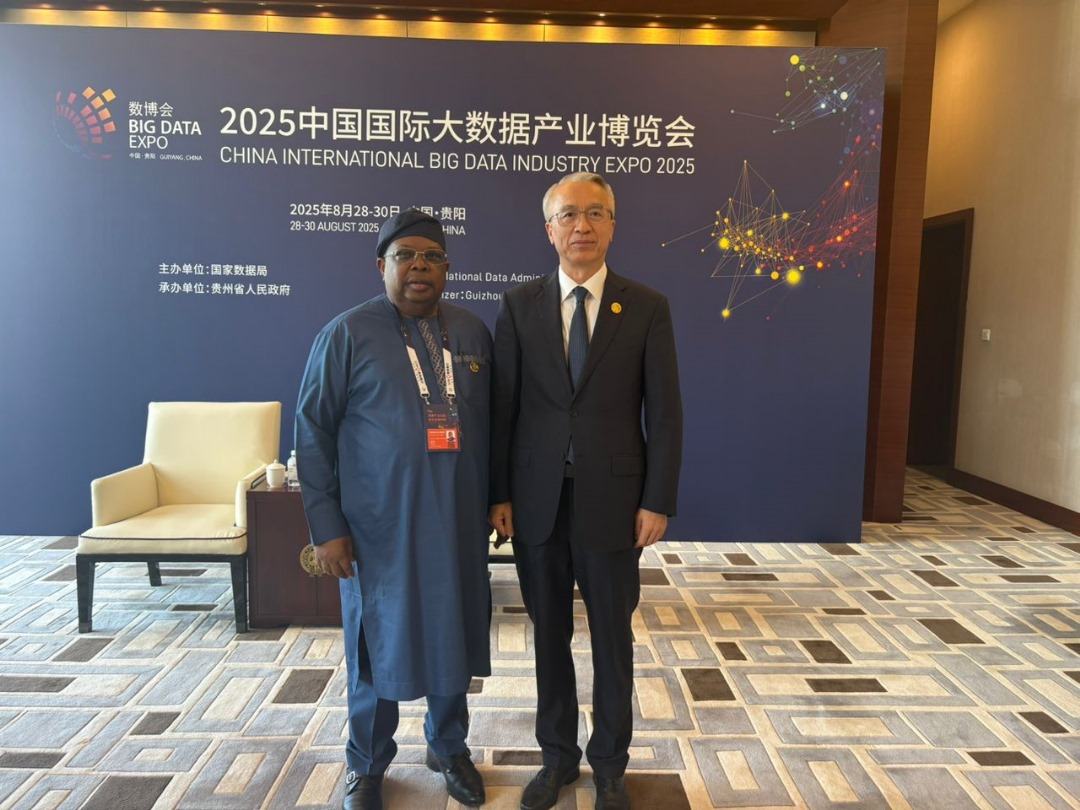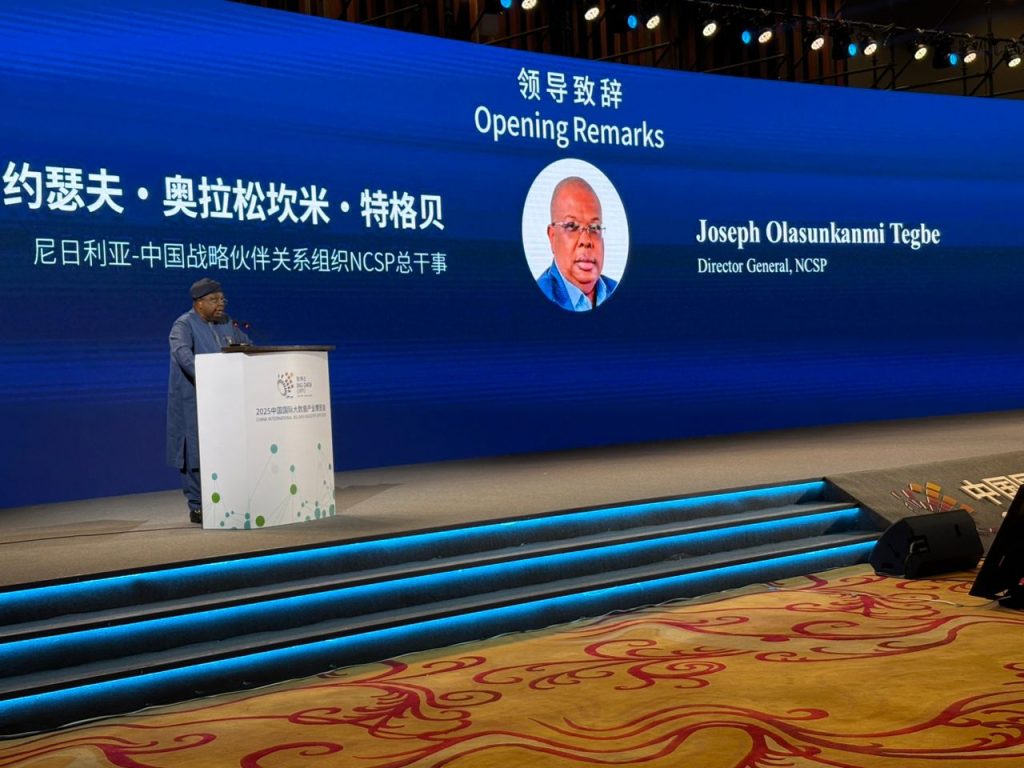
Nigeria has stepped up its campaign to position itself as Africa’s next big data hub, urging Chinese technology giants to seize early opportunities in the continent’s rapidly expanding digital economy.
The message was delivered by Joseph Tegbe, Director-General of the Nigeria-China Strategic Partnership (NCSP), who used two major platforms in Guiyang, China, to present both the vision and the investment blueprint for Nigeria’s digital future.
At the China International Big Data Industry Expo, Tegbe framed Nigeria as a natural partner for China in replicating its digital transformation story on African soil.
He pointed to the country’s more than 160 million internet-connected citizens, a thriving fintech sector, and expanding fiber infrastructure as evidence of readiness. With a population of 220 million, largely young and tech-driven, he argued that Nigeria is primed for a digital leap that could rival the shifts China has achieved over the past two decades. Big data, he said, was not merely a technical issue but a strategic one, about turning intelligence into economic and social value. For him, Africa’s existing shortfall in digital infrastructure should not be viewed as a weakness but as an opportunity, a greenfield that investors can shape.
He urged Chinese technology leaders to be early movers in building Africa’s “digital highways,” with Nigeria as the continental anchor.
While his first address stressed aspiration and positioning, Tegbe’s second speech at the Digital Silk Road Connection Event offered a more detailed roadmap. He revealed that Nigeria’s data center market, valued at $278 million in 2024, is projected to grow to $671 million by 2030. With Africa’s internet user base already above 570 million and mobile traffic expanding at 40 percent annually, he said demand for digital capacity was clear and urgent. This demand, he noted, represents a strategic opening for deeper Asia–Africa collaboration under the Digital Silk Road, the Belt and Road Initiative’s digital cooperation framework.
Tegbe outlined four priority areas for partnership. First is the development of hyperscale data centers and cloud availability zones, which he said would form the backbone of Africa’s digital economy.

Second is the diversification of global AI supply chains through the integration of African datasets and talent, a move that would bring greater inclusivity to emerging technologies. Third is the establishment of joint laboratories in sectors such as agriculture, health, and financial services, ensuring that local data informs local solutions. Finally, he highlighted the need for stronger talent pipelines through research and exchange programs, aligning African capacity with Chinese expertise.
He tied these proposals to the broader African Continental Free Trade Area (AfCFTA), stressing that its 1.4 billion-person market offered an unprecedented opportunity for investors prepared to act decisively.
“The countries that will thrive in the modern economy are not those with the most minerals, but those who can harness data for their people,” he said, positioning Nigeria as the launchpad for that transformation.
Throughout both engagements, Tegbe reaffirmed Nigeria’s commitment to the One-China principle and praised the longstanding role of Chinese companies in Nigeria’s development. Firms such as CCCC, CRCC, CCECC, CHEC, Huawei, and ZTE, he said, had already woven themselves into Nigeria’s economic story through contributions in infrastructure and technology. Their experience, he added, positioned them well to lead the next phase of digital cooperation.
Concluding his series of engagements, Tegbe underscored the scale of the opportunity at hand. “The world is entering a new era where data is the new oil,” he said.
“If we align China’s expertise with Nigeria’s innovation and Africa’s vast markets, we can create new Silk Roads of digital opportunity. Nigeria is ready. Africa is ready. Together with China, we can shape the digital destiny of tomorrow.”




